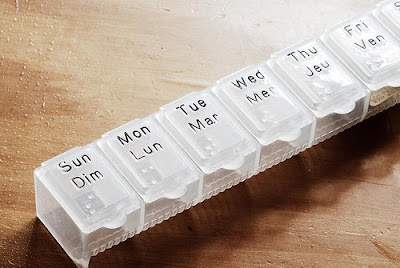As the LSAT approaches, you've probably started clutching your PrepTests for protection. Your friends have started to compare you to Linus from the Peanuts comic, who carries his blanket wherever he goes.
However, if you've been studying for a while, you might be sick of the LSAT by now. Your body might start to reject the LSAT like an organ transplant gone wrong.
So how do you continue to prepare when you feel like you just can't take it anymore, but the LSAT's still a couple of weeks away?
More importantly, how do you know whether your aversion to the LSAT is due to burnout or laziness? Believe it or not, people sometimes mistake one for the other.
Here are some tips to help you determine whether it's burnout or laziness, and, if it's the former, how to deal with it.
Burnout vs. Laziness
1. Average PrepTest scores drop
If your PrepTest scores have recently dropped below your average PrepTest score, it's probably burnout.
If your score was never high to begin with, it's probably laziness.
2. Careless mistakes
If most of your recent mistakes are due to carelessness, rather than a lack of understanding, it's probably burnout.
If you just make a lot of mistakes in general, it's probably laziness.
3. Studying but feel like it's going nowhere
If you've done several practice exams recently and feel like it's going nowhere, it's probably burnout.
If you haven't done anything recently and feel like you're studying's going nowhere, it's probably laziness.
4. Feel guilty for taking short breaks
If you took a break from studying for an hour and felt guilty, it's probably burnout.
If you took a break from studying for a month and felt guilty, it's probably laziness.
5. Studying 10 hours per day
If you study for 10 hours per day, it's probably burnout.
If you think about the LSAT for several hours every day, and you count those hours as actual studying, it's probably laziness. (Note: lawyers often bill for this kind of "work" too, so you'll be in good company after graduating from law school)
If you've identified your problem as laziness, read 5 Reasons to Stay Motivated During LSAT Prep.
If your problem is burnout, read on.
How to recover from LSAT burnout
You may just need a break to recharge your batteries.
The burned-out student might say, "But I can't stop studying now! The test is 2 1/2 weeks away, and I still have another 30 PrepTests to finish before then."
You may not have any brain cells remaining if you try to do that many PrepTests in such a short period of time.
The LSAT's like riding a bike. Memorization's not involved, so cramming won't work. Sure, there are some things you need to remember. However, if taking a day or two off makes you forget them, you probably didn't understand them in the first place. The LSAT is about skills and a particular mindset, not facts.
So take a day or two off and exercise, watch a TV show or two, whatever you like to do to unwind.
Then rebuild your confidence by redoing your favorite Logic Games, Logical Reasoning questions, or Reading Comprehension passages. This will help you get back in the groove and gear you up to get back on schedule (see Daily LSAT Schedule Recommendations).
However, if you've been studying for a while, you might be sick of the LSAT by now. Your body might start to reject the LSAT like an organ transplant gone wrong.
So how do you continue to prepare when you feel like you just can't take it anymore, but the LSAT's still a couple of weeks away?
More importantly, how do you know whether your aversion to the LSAT is due to burnout or laziness? Believe it or not, people sometimes mistake one for the other.
Here are some tips to help you determine whether it's burnout or laziness, and, if it's the former, how to deal with it.
Burnout vs. Laziness
1. Average PrepTest scores drop
If your PrepTest scores have recently dropped below your average PrepTest score, it's probably burnout.
If your score was never high to begin with, it's probably laziness.
2. Careless mistakes
If most of your recent mistakes are due to carelessness, rather than a lack of understanding, it's probably burnout.
If you just make a lot of mistakes in general, it's probably laziness.
3. Studying but feel like it's going nowhere
If you've done several practice exams recently and feel like it's going nowhere, it's probably burnout.
If you haven't done anything recently and feel like you're studying's going nowhere, it's probably laziness.
4. Feel guilty for taking short breaks
If you took a break from studying for an hour and felt guilty, it's probably burnout.
If you took a break from studying for a month and felt guilty, it's probably laziness.
5. Studying 10 hours per day
If you study for 10 hours per day, it's probably burnout.
If you think about the LSAT for several hours every day, and you count those hours as actual studying, it's probably laziness. (Note: lawyers often bill for this kind of "work" too, so you'll be in good company after graduating from law school)
If you've identified your problem as laziness, read 5 Reasons to Stay Motivated During LSAT Prep.
If your problem is burnout, read on.
How to recover from LSAT burnout
You may just need a break to recharge your batteries.
The burned-out student might say, "But I can't stop studying now! The test is 2 1/2 weeks away, and I still have another 30 PrepTests to finish before then."
You may not have any brain cells remaining if you try to do that many PrepTests in such a short period of time.
The LSAT's like riding a bike. Memorization's not involved, so cramming won't work. Sure, there are some things you need to remember. However, if taking a day or two off makes you forget them, you probably didn't understand them in the first place. The LSAT is about skills and a particular mindset, not facts.
So take a day or two off and exercise, watch a TV show or two, whatever you like to do to unwind.
Then rebuild your confidence by redoing your favorite Logic Games, Logical Reasoning questions, or Reading Comprehension passages. This will help you get back in the groove and gear you up to get back on schedule (see Daily LSAT Schedule Recommendations).









